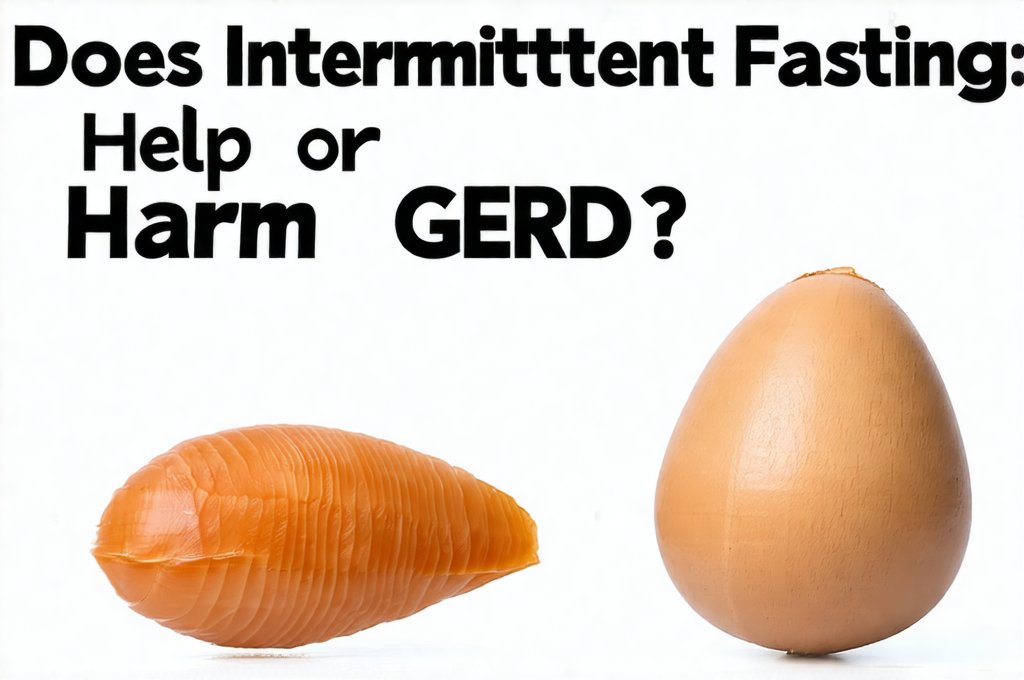Gastroesophageal reflux disease (GERD) affects millions worldwide, characterized by persistent heartburn, regurgitation, and discomfort. Many individuals with GERD meticulously manage their diets to alleviate symptoms, often facing restrictions that can feel limiting. In recent years, intermittent fasting (IF) – an eating pattern cycling between periods of voluntary fasting and non-fasting – has gained immense popularity as a weight management tool and potential health enhancer. However, for those grappling with GERD, the question arises: does IF offer relief or potentially exacerbate their condition? Understanding this complex relationship requires careful consideration of how IF impacts digestion, stomach acid production, and esophageal sensitivity. It’s not a one-size-fits-all answer; individual responses vary greatly depending on the specific type of IF practiced, the severity of GERD, and underlying health factors.
The allure of IF stems from its perceived simplicity and potential benefits beyond weight loss, including improved insulin sensitivity and cellular repair processes. Yet, for individuals with GERD, altering eating patterns can introduce new challenges. The typical dietary recommendations for managing GERD focus on frequent, smaller meals to avoid overfilling the stomach and triggering reflux. Intermittent fasting inherently involves prolonged periods without food intake, raising concerns about increased acid production during fasting and potential aggravation of symptoms when refeeding begins. This article will delve into the intricacies of IF’s effects on GERD, exploring both potential benefits and risks, while emphasizing the importance of individualized approaches and professional guidance.
Understanding Intermittent Fasting & Its Variations
Intermittent fasting isn’t a diet in the traditional sense; it’s an eating pattern. It focuses on when you eat, rather than what or how much (although dietary quality remains important). Several common methods exist:
- Time-Restricted Eating (TRE): This involves confining your eating window to a specific number of hours each day, such as 16/8 (fasting for 16 hours, eating within an 8-hour window) or 18/6.
- Alternate Day Fasting (ADF): Alternating between days of normal eating and days with very restricted calorie intake (typically 500-600 calories).
- 5:2 Diet: Eating normally for five days a week and restricting calories on two non-consecutive days.
- Eat-Stop-Eat: Involves a 24-hour fast once or twice per week.
The choice of IF method significantly impacts its potential effects on GERD. For instance, longer fasting periods like those in ADF or Eat-Stop-Eat might be more problematic than TRE with shorter windows. The rationale behind IF’s purported benefits often relates to metabolic shifts. During fasting, the body switches from using glucose as its primary energy source to burning stored fat. This can lead to weight loss and improvements in insulin sensitivity. However, these metabolic changes may also affect gastric acid secretion and esophageal motility—factors crucial for GERD management. A key consideration is that fasting itself doesn’t necessarily eliminate acid production; it shifts the timing and potentially the volume of production relative to food intake. Some individuals might find can fasting help reset their digestive system, while others may not.
The impact of IF on GERD isn’t straightforward because of the complex interplay between digestive physiology, lifestyle factors, and individual sensitivity. Some individuals may find that reduced meal frequency leads to less stomach distension and fewer reflux episodes. Others may experience increased acidity during fasting periods, triggering heartburn or regurgitation. It’s also important to note the role of food choices within the eating window. Consuming large meals rich in fatty or acidic foods can counteract any potential benefits from IF and worsen GERD symptoms.
How Intermittent Fasting Can Affect GERD Symptoms
The relationship between IF and GERD is nuanced, with both potential positive and negative effects. One proposed benefit stems from weight loss. Obesity is a significant risk factor for GERD, as excess abdominal fat increases intra-abdominal pressure, forcing stomach contents upward into the esophagus. If IF leads to sustainable weight loss, it could alleviate these symptoms. Furthermore, some research suggests that IF may improve gut health by altering the microbiome composition—a healthy gut microbiome can play a role in reducing inflammation and improving digestive function. However, this is an area requiring further investigation, as discussed in intermittent fasting and its impact on overall wellbeing.
Conversely, several aspects of IF could potentially worsen GERD. Prolonged fasting periods might lead to increased gastric acid production, especially when refeeding begins. When the stomach is empty for extended periods, it may attempt to compensate by overproducing acid in anticipation of food, increasing the risk of reflux. Additionally, some individuals find that lying down after eating (a common practice within certain IF schedules) exacerbates GERD symptoms due to gravity’s effect on stomach contents. Diaphragmatic pressure is another factor; if fasting leads to dehydration or weakness, it could impact diaphragmatic support and increase the likelihood of reflux. It’s also worth considering that the psychological stress associated with restricting food intake can sometimes contribute to increased acid production in susceptible individuals. If you are unsure are you reacting to something specific, it is best to consult a professional.
The Role of Stomach Acid & Esophageal Sensitivity
Stomach acid is essential for digestion, but excessive amounts or improper timing can irritate the esophagus. In GERD, the lower esophageal sphincter (LES) – a muscular valve separating the stomach and esophagus – weakens or relaxes inappropriately, allowing acidic contents to flow back up. Intermittent fasting could potentially affect this process in several ways.
- Increased Acid Production: As mentioned earlier, prolonged fasting might stimulate acid production as the body prepares for refeeding. This can be particularly problematic if the LES is already compromised.
- Delayed Gastric Emptying: In some individuals, IF may delay gastric emptying – the rate at which food leaves the stomach. If food remains in the stomach longer, it increases the risk of reflux. However, this effect varies depending on the individual and the type of IF practiced.
- Esophageal Hypersensitivity: Some people with GERD experience visceral hypersensitivity, meaning their esophagus is abnormally sensitive to even small amounts of acid. IF’s fluctuations in acid production could potentially trigger symptoms in these individuals more easily.
It’s important to remember that the sensation of heartburn isn’t always directly correlated with actual acid exposure. Esophageal sensitivity plays a significant role, and individual thresholds vary considerably. What one person perceives as mild discomfort another might experience as debilitating pain. Therefore, assessing IF’s impact requires considering both objective measures (like pH monitoring) and subjective symptom reporting.
Dietary Considerations During Eating Windows
Even if IF doesn’t directly worsen GERD, poor dietary choices during the eating window can negate any potential benefits and exacerbate symptoms. Trigger foods for GERD include:
- Fatty foods
- Spicy foods
- Acidic foods (citrus fruits, tomatoes)
- Chocolate
- Caffeine
- Alcohol
- Carbonated beverages
During IF, it’s crucial to prioritize a balanced diet rich in whole, unprocessed foods during the eating window. This includes lean proteins, complex carbohydrates, and plenty of vegetables. Eating smaller, more frequent meals within the window, rather than large portions, can also help minimize reflux episodes. Hydration is paramount – adequate water intake supports digestion and helps neutralize stomach acid.
- Meal Timing: Avoid eating right before bedtime, as lying down after a meal increases the risk of reflux.
- Portion Control: Keep portion sizes moderate to prevent overfilling the stomach.
- Food Journaling: Track your food intake and symptoms to identify personal triggers.
Individualized Approach & Professional Guidance
Ultimately, determining whether IF helps or harms GERD requires an individualized approach. There is no universal answer. Factors like the severity of GERD, individual sensitivity, type of IF practiced, and dietary habits all play a role. Self-experimentation can be helpful, but it’s essential to do so cautiously and under medical supervision.
- Consult your doctor: Before starting any IF regimen, especially if you have GERD, discuss it with your physician or a registered dietitian.
- Start slowly: Begin with a less restrictive form of IF, such as TRE 16/8, and gradually increase the fasting period if tolerated.
- Monitor symptoms: Carefully track your GERD symptoms during IF to assess whether they improve, worsen, or remain unchanged.
- Adjust as needed: If IF exacerbates your GERD, discontinue it or modify the protocol.
- Focus on quality diet: Prioritize a healthy, balanced diet within the eating window and avoid trigger foods.
It’s crucial to emphasize that this article is not intended as medical advice. The information provided here is for general knowledge and informational purposes only, and does not constitute medical advice. It is essential to consult with a qualified healthcare professional for any health concerns or before making any decisions related to your health or treatment. They can provide personalized guidance based on your specific situation and ensure that IF doesn’t interfere with other medications or underlying conditions. If you are considering intermittent fasting, it’s important to understand are intermittent fasting benefits truly worth the hype? Additionally, understanding how can fasting help reset digestive function can offer valuable insight. For those with gut issues, it’s important to explore is intermittent fasting helpful for your specific condition? Furthermore, certain approaches like optimizing pancreatic health through intermittent fasting may be beneficial to some. Lastly, consider whether can fasting help reset a reactive gut.


















